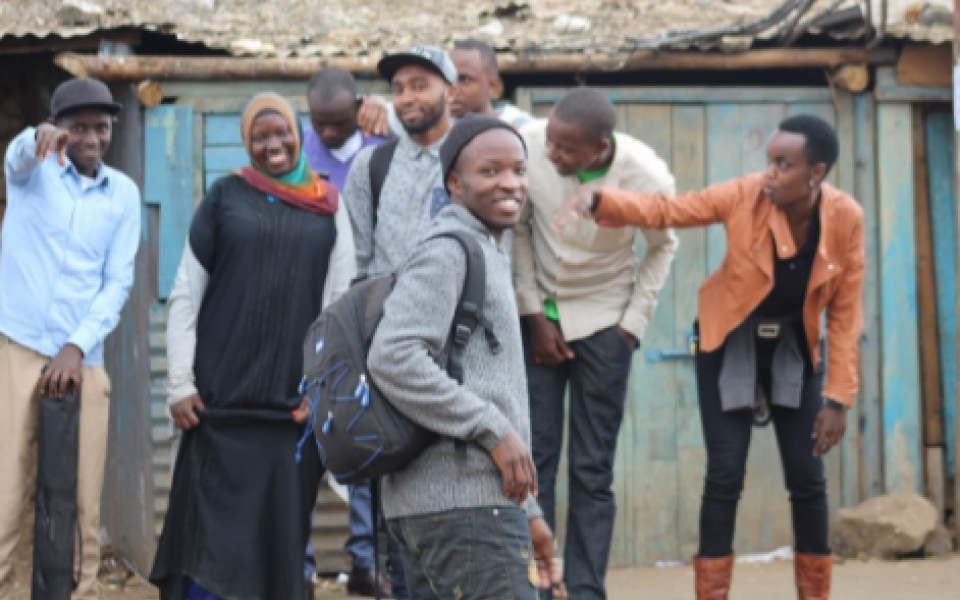
On July 16, several CCs based in Nairobi, Kenya, including Soweto East, Undugu, Young Mothers, Big Brother, Twinkle Initiative, and Bloodlife gathered with URI regional staff. This came after an informal meeting in which we set a common agenda ahead of the 2017 Kenya Elections. These informal gatherings were chosen as the best option for doing things differently. We decided to have the three groups—Nairobi CCs, rural CCs, and Youth CCs—deliberating separately. With the Nairobi-based CCs, we took our cameras and hit the city streets around areas where we work with CCs.
Besides the fun of clicking the cameras and taking notes, we deliberately took stock of issues of cooperation, justice, peace or lack thereof in our communities.
We sat with different groups and had informal discussions about anything and everything, including on issues of peace and justice.
We sat down with women in Laini Saba, a village in Kibra, to discuss issues of gang crime and violent extremism. Two different themes showed up which pointed to why we need to constantly review our responses and engagement when we create programs for grassroots communities. Women in Laini Saba are disgruntled by the current practices of engaging law enforcement and religious leaders in the fight against crime and violence because both positions are filled with men who actively or passively impose their masculinities in the name of security, sometimes in very oppressive ways towards women. For example, there was a common assertion that law enforcement often demands sexual or monetary favors, while religious leaders are partial and non-committal towards resolutions. The women also do not consider the current “baraza” (community meetings) as a safe space for dialogue and action, and therefore do not regularly attend. As we are interested in engaging women in peace programming, it is clear that we need to look for alternative spaces to engaging women in comprehensive gender inclusion, especially in Kibra.
Another group we sat with was a group of young traders by the roadside. Amidst growing crime and violence, perceptions of these trends were common across society from economic drivers to misplaced groups. The youth felt that the booming Boda Boda (motorcycle taxis comparable to Indian rickshaws) was a time-bomb. Their reasoning was that during political rallies and protest, the group was noticeably present both as participants and as transporters. In the last election, the few violent incidences that were reported involved clusters of Boda Boda Riders and the crimes attributed to the group are escalating in nature.
As it goes then, engaging youth in rapid response as a component of peacebuilding should involve this group as a solid target. Issues of crime and violence like most grassroots issues are dynamic and require a constantly monitored, context-sensitive examination for engagement if we aim to be impactful in our respective initiatives. Community literacy goes beyond reading through demographics and replicable models; if it’s for the people, let them lead you.
